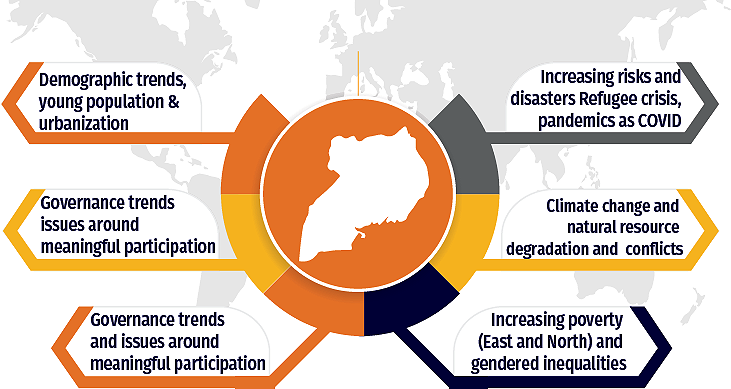Introduction
CARE International has been working in Uganda since 1969 to address the urgent needs of conflict and disaster-affected populations and to provide support to community development. CARE’s first projects in Uganda focused on agricultural development, animal husbandry, health education, and community development.
In CARE, we recognize the risks, but also the potential that comes with change – and certainly the necessity to actively embrace and drive it.

Celebrating Women and Girls Parity at CARE Uganda on IWD 2019
CARE subsequently expanded its work in livelihoods, financial inclusion and natural resource governance programming. Since 2016, CARE has been scaling-up its humanitarian response to address the needs of refugees, arriving in the country in the hundreds of thousands, first from South Sudan to Uganda’s Northern region, then from the Democratic Republic of Congo (DRC) to the Western region.
-
2015
Collective work
Between 2015 and 2019, the collective work of CARE and our partners reached almost 2 million people in Uganda, of which more than 60% were women and girls.
-
2020
Year of change
2020 was a year of change – both externally and internally. The world grappled to contain the COVID-19 virus while limiting secondary damage. In Uganda, the pandemic is exacerbating poverty and inequality, insufficient access to social services, and protection risks for both Ugandans and refugees. Women, girls, refugees, persons with disabilities, and older persons have been particularly affected by the pandemic as has been well documented in several research studies including CARE’s In-depth Analyses conducted in 20202 and especially where the burden of unpaid work and higher rates of women and girls-based violence (W&GBV) are concerned.
In July 2020, the Government of Uganda (GoU) published its Third National Development Plan (NDP-3), which indicates the pathway for Uganda’s development over the next five years. Political institutions and actors have been preparing for the January 2021 General Elections. Within CARE, change comes through the definition of a new strategic direction expressed through CARE’s Vision 2030.
Context
Uganda is rich in natural resources and human potential. The climate is favourable for agriculture; water, land, and other natural resources are available. With 75% of Ugandans under age 30 the country is in a good position to harness the demographic dividend and generate women and girls advancement change. Uganda has a thriving private sector,5 and Information and Communication Technologies (ICT) are adopted fast.
At the same time, Uganda is prone to continuous crises that negatively impact the realization of the country’s potential. Chronic instability in the Great Lakes Region has forced more than 1.4 million people from South Sudan, DRC, and Burundi to seek refuge in Uganda


